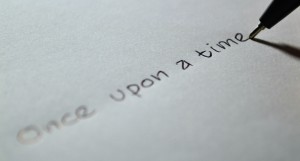 First there was sidereal time, the cold time of stars and rings and churning space, charted by the ancients, drawn down by Galen and informing Dante; then Newtonian time, for want of a better description, when our blind watchmaker automates the universe. Later still we have Einsteinian time, when time is just one element of the greater equation. Indeed there may be lots of times, at the same time. conterminous times.
First there was sidereal time, the cold time of stars and rings and churning space, charted by the ancients, drawn down by Galen and informing Dante; then Newtonian time, for want of a better description, when our blind watchmaker automates the universe. Later still we have Einsteinian time, when time is just one element of the greater equation. Indeed there may be lots of times, at the same time. conterminous times.
I have spent the last few days in hospital time. It is a time out of time (and now I’m reaching into Four Quartets territory and instinctively draw back) or, more correctly, a time of its own. Hospitals are, I suppose necessarily, places dominated by process. Taking people to the theatre, bringing them back from recovery, the daily rounds – highly monitored – of drug dispensing, blood pressure taking, washing and changing beds. Those who are bed-bound fit into this routine perforce, with lots of activity at the start of the day (not something I particularly enjoyed) but there’s also a lot of empty time.
blood pressure taking, washing and changing beds. Those who are bed-bound fit into this routine perforce, with lots of activity at the start of the day (not something I particularly enjoyed) but there’s also a lot of empty time.
People in hospitals are either, usually, hurrying front activity to activity, having less time than they would like ( the junior doctors I saw, new contracts notwithstanding, still seemed rushed off their feet ) or, conversely, just filling in time, waiting. And, given the consumption of mind-altering substances, ( one only has to have half-way major  surgery to experience this ) quite a lot of time out of mind.
surgery to experience this ) quite a lot of time out of mind.
A la Recherche du Temps Perdu is the classic novel about time. I’m afraid I didn’t take it with me, neither did I avail myself of the long tradition of lighter fiction e.g. The Time Machine, Connecticut Yankee.. on the same subject. The novel which plays with time isn’t a new phenomena but it does seem to be enjoying something of a resurgence, so I had plenty to choose from, had I so wished. From Martin Amis’s Time’s Arrow (Vintage 2003) to Audrey Niffenegger’s The Time Traveller’s Wife (2005) and Kate Atkinson’s more recent 2013 Costa winning Life After Life these continue to be best sellers of global proportions.
The more popular tradition isn’t neglected in modern times either, with Kate Mosse kick-starting the historical novel which covers  two periods separated in time, but with one reaching across to the other, in her Labyrinth series set in and around Carcassonne in the south of France. Elizabeth Buchan continues this rather differently, with no flinching from aspects of more recent war in The New Mrs Clifton, a book which begins in modern London but ranges back to WWII and immediately after. And none of these (the Niffenegger aside) is really to do with time travel, in the H G Wells sense, at all.
two periods separated in time, but with one reaching across to the other, in her Labyrinth series set in and around Carcassonne in the south of France. Elizabeth Buchan continues this rather differently, with no flinching from aspects of more recent war in The New Mrs Clifton, a book which begins in modern London but ranges back to WWII and immediately after. And none of these (the Niffenegger aside) is really to do with time travel, in the H G Wells sense, at all.
Of course one of the advantages of hospital and subsequent recuperation time is added time to read. So I have been. But not the most popular of recent science books on this subject, Hawking’s A Brief History of Time, (Bantam, 2011), one of those books people buy and then make reference to, but don’t actually read. It is on my shelf, but not for now. So what did I take with me and why?
Well, that’s for my next post. Another time.
Foe more on books try Short Stories Warp and weft Common Books


 RSS – Posts
RSS – Posts
2 responses to “Time”